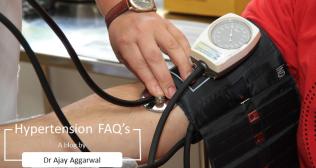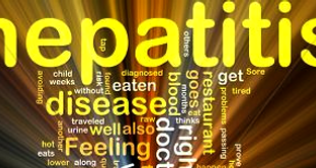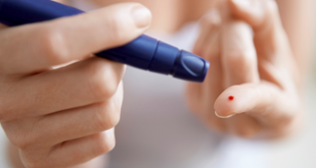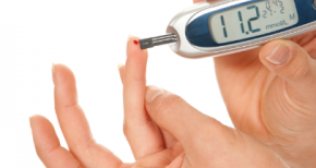
Navigating Hypocalcemia: Understanding Calcium Deficiency
Hypocalcemia is a state when there are only a few percent of calcium enriched in the blood. Calcium is one of the macro nutrients mostly needed in the human body for construction of bones, muscle contractions, nerve impulses, blood clotting among other uses It is mostly located in 99% of the human body skeletal system. The rest of the 1% circulates in the blood and is critical for physiological processes such as:The other one percent exists in the blood and plays a very important role as it is involved in the following physiological functions:
• Bone and Teeth Health
• Muscle Function
• Nerve Transmission
• Blood Clotting
• Hormonal Secretion:
Causes of Hypocalcemia
Hypocalcemia can result from various underlying conditions and factors:
• Vitamin D Deficiency: It thus is involved in the ability of the intestines to absorb calcium, that occurs in the body. Of the given relations, it was also observed that Deficiency in Vitamin D can cause Low levels of Calcium.
• Parathyroid Disorders: It is also involved in the regulation of calcium in the blood through regulation of parathyroid glands. Such illnesses as hypoparathyroidism results to low Ca levels in the body because the glands are not functioning well in this case.
• Chronic Kidney Disease: As to kidneys, considering that on activation of vitamin d – which is one of the most essential factors in terms of calcium’s absorbency.
• Magnesium Deficiency: This is required for synthesizing and secreting parathyroid hormone that controls the level of calcium. These affect the ability to have calcium, and this mostly results from a low content of magnesium.
• Medications: Certain medications can disturb the calcium level in the blood; such medication is bisphosphonates, anticonvulsants, and diuretics.
• Pancreatitis: Pancreatitis can cause the stereophonic of calculus cigna in the abdomen which can decrease blood calcium.
Symptoms of Hypocalcemia
The symptoms of hypocalcemia can vary from mild to severe, depending on the deficiency.
• Muscle Cramps and Spasms: Calcium has important role in muscles; if its level falls a person can experience tetanic contraction of muscles.
• Numbness and Tingling: Seventy percent of patients with hypocalcemia present with the subjective complaint of tingling in their fingers, toes, and around the mouth.
• Fatigue: Low calcium level is dangerous because of weakness and tiredness that may occur as the prevalent symptoms.
• Seizures: Therefore, due to the interference with nerve impulses, hypocalcemia characterized by calcium levels below 1.1 mmol/L can cause seizures.
• Cardiac Symptoms: Calcium also plays a critical role in the functioning of the heart and therefore low level may result in palpitations, irregular heartbeats and in severe cases the individual may develop heart failure.
• Osteoporosis: Chronic hypocalcemia which is a deficiency of calcium in the blood often results in osteoporosis and thus, raises the probability of bone fractures.
Diagnosis and Treatment
The assessment of hypocalcemia is one of the differential diagnosis procedures that combine complete clinical assessment and laboratory examination. Blood tests for calculating total and ionized calcium concentrations are also carried out, in addition to the concentrations of other closely associated minerals, including magnesium and phosphorus. However, some other diagnostic screening that may be necessary to check on the causes include that for parathyroid hormone as well as the vitamin D level.
Management of Hypocalcemia
Hypocalcemia management seeks for the underlying cause and balance of the calcium in the blood in food, vitamin and medicinal ingestion.
• Dietary Changes: the diet should contain calcium rich foods.
• Calcium Supplements: In the situation where a particular individual is unable to take the required amount of calcium in his or her diet then probably tablets would be needed in his or her case.
• Vitamin D Supplementation: Another very important nutrient there is and that is vitamin D which will assist the body to formulate calcium. Deficiency can also be supplemented by having vitamin D prescribed having a deficiency of sunlight or problems with absorption of nutrients.
• Magnesium Supplementation: If there are other concurrent conditions of magnesium deficiency, then magnesium is administered to improve calcium uptake and utilization.
• Medication Management: If hypocalcemia is due to taking medication, it may be beneficial to change the dosage of the medicine, or even switch to another medicine under the recommendation of the healthcare provider.
• Hormone Therapy: If that is the case, synthetic PTH hormone may be prescribed to those with hypoparathyroidism to manage calcium concentration.
• Genetic Factors: There are some genetic disorders which cause hypocalcemia some of which include DiGeorge syndrome and familial hypocalcemia.
Preventing Hypocalcemia
Some of the measures for avoiding hypocalcemia include adequate nutrition and adequate intake of calcium and vitamin D, exercise, and regular health check-ups regularly for calcium level examination. It’s critical for patients with chronic disease or those who have a family history of the disease to take control and visit health care providers often.



















